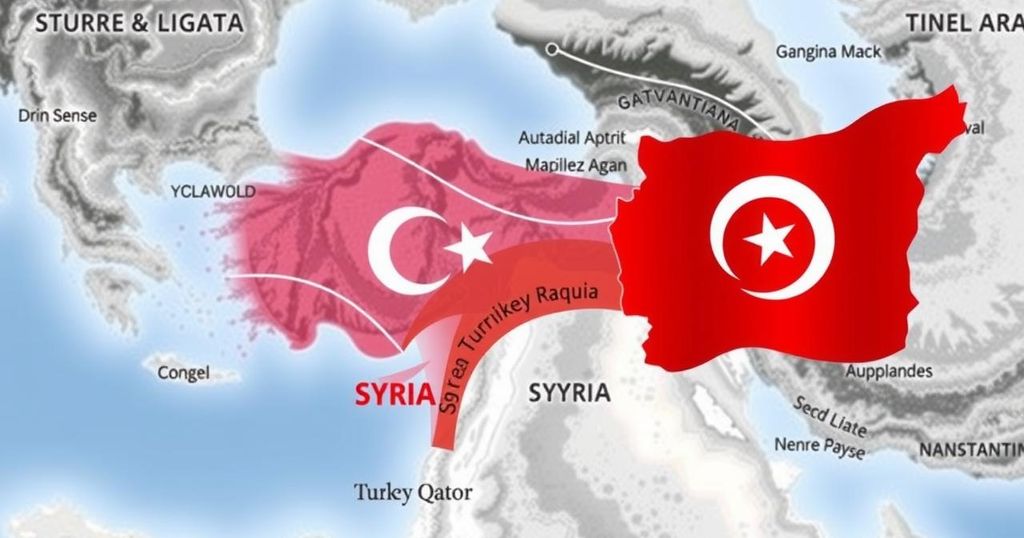Qatar has ruled out the revival of a proposed gas pipeline to Europe via Turkey and Syria, calling claims speculative. The Qatari Foreign Ministry emphasized ongoing humanitarian support for Syria, while experts raised concerns over the pipeline’s economic and logistical feasibility, suggesting that Qatar focus on expanding its liquefied natural gas exports instead.
The Qatari Foreign Ministry has categorically rejected recent reports affirming the revival of a pipeline project designed to transport natural gas from Qatar to Europe through Turkey and Syria, labeling such claims as mere speculation. Majed bin Mohammed al-Ansari, a spokesman for the ministry, emphasized that the discussions surrounding this gas pipeline are unfounded, particularly in light of the current geopolitical landscape. Discussions regarding the Qatar-Turkey Natural Gas Pipeline—a project initially proposed in 2009—have re-emerged following the recent political changes in Syria, but the prospects remain uncertain.
Turkish Energy Minister Alparslan Bayraktar had previously noted that the feasibility of this pipeline hinges on restoring Syria’s territorial stability. The ambitious project, estimated at $10 billion, would seek to convey gas from Qatar’s South Pars/North Dome field through a route comprising Saudi Arabia, Jordan, Syria, and Turkey. However, such a proposal was previously unaccepted by former Syrian President Bashar al-Assad due to a strategic preference for aligning with Russia as Europe’s principal gas supplier.
Al-Ansari further highlighted Qatar’s commitment to supporting humanitarian efforts in Syria, focusing on infrastructure rebuilding rather than pursuing gas supplies. Meanwhile, experts have expressed skepticism regarding the pipeline’s practicality, citing economic, technical, and political barriers. Energy analyst Sohbet Karbuz stated that given Qatar’s expansion in liquefied natural gas (LNG) production, which is projected to rise by 85% by 2030, the nation should prioritize LNG exports over potentially redundant pipeline projects. Observers also indicated that achieving a competitive advantage through a new pipeline amid complex European energy regulations presents substantial challenges. Moreover, logistical obstacles concerning infrastructure in contested regions were flagged as critical deterrents against the project.
The discussion surrounding the Qatar-Turkey Natural Gas Pipeline reflects broader geopolitical dynamics in energy supply, particularly in the context of Europe’s growing energy needs coupled with shifts towards renewable sources. The proposed pipeline was initially shelved in 2009 due to strategic disagreements, namely Syria’s alignment with Russian energy interests over those of Qatar. With Qatar being a leading liquefied natural gas exporter, the nation is focusing on expanding its LNG production capacity significantly, aiming to meet global demands without the complexities associated with constructing and maintaining a new pipeline in potentially unstable regions.
In summary, Qatar’s rejection of the proposed Qatar-Turkey pipeline underscores the challenges associated with energy infrastructure in politically sensitive areas. The emphasis on expanding LNG capabilities reflects a strategic pivot towards maximizing immediate export potential over speculative projects. As geopolitical landscapes evolve, the focus may shift towards more complex energy solutions that integrate regional supply with growing European renewable energy demands.
Original Source: www.turkishminute.com






